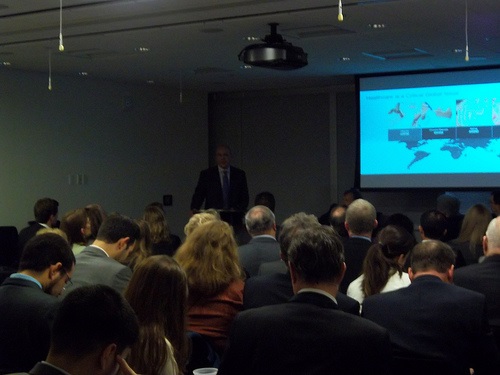
Image Credit: Grand Innovation Challenges of the 21st Century, Information Technology Innovation Foundation
May 19, 2015; Devex
Ever heard of a “Grand Challenge”? It’s a relatively new concept being adopted by foundations and various partner public agencies seeking to do big, bold things to solve exceptionally difficult national and international problems.
The Global Grand Challenges webpage has the sponsoring signatures of the U.S. Agency for International Development (USAID), the Bill & Melinda Gates Foundation, and Grand Challenges Canada (the latter with the tagline, “Bold Ideas with Big Impact”). Describing Grand Challenges as a “family of initiatives [that] fosters innovation to solve key health and development problems,” the webpage indicates that there have been 1,689 Grand Challenges grants awarded so far. The newest phase of Grand Challenge grants includes five with due dates in May addressing techniques (and business models) for using less water (or generating more water) for food production, new techniques for measuring the use of digital financial services, using bacteriophage-mediated microbiome engineering to deal with problems of infant and newborn gut health, and strategies for enabling merchant acceptance of mobile money payments.
Sign up for our free newsletters
Subscribe to NPQ's newsletters to have our top stories delivered directly to your inbox.
By signing up, you agree to our privacy policy and terms of use, and to receive messages from NPQ and our partners.
The White House’s Office of Science and Technology Policy has its own Grand Challenges page, defining grand challenges as “ambitious but achievable goals that harness science, technology, and innovation to solve important national or global problems and that have the potential to capture the public’s imagination.” The White House Grand Challenges are part of President Obama’s “Strategy for American Innovation,” an “all hands on deck” approach in White House parlance, citing as approved models the Gates Foundation’s response to Grand Challenges in health, Duke University and Olin in a Grand Challenge Scholars program on organizing research and education in engineering, IBM working on artificial intelligence, the Department of Energy’s SunShot Grand Challenge to make solar energy cost competitive, the EV Everywhere Challenge to make electric cars as affordable as gas-powered cars within 10 years, and NASA’s Asteroid Grand Challenge to catalogue all asteroid threats to humans.
Devex’s Molly Anders takes stock of the state of Grand Challenges in the realm of international development and asks where the trajectory of Grand Challenges is leading. Having talked to various experts on the grand challenge model, she concludes that most experts say that it takes 15 years for the innovation of a grand challenge to reach scale. That means some of the grand challenges in international development are already a decade old, and “the clock is ticking.” Is there success to point to? The experts that Anders talked to basically suggest that the Grand Challenge results to date are promising, but the jury is still out.
Anders raises a number of questions about the Grand Challenges, and her analysis suggests a few more:
- Does the Grand Challenge focus on “tech-savvy innovations…possibly distract…from perennial barriers to development, such as health and sanitation infrastructure”? Does the technological and scientific emphasis of the Grand Challenge lead sponsors—foundations and governments—to emphasize flash and glitz and ignore more fundamental issues for development policy?
- Does the “open-sourced” or crowdsourced approach to finding technological innovations favor big players (like the pharmaceutical companies) that are able to stay with a project from beginning to an end 15 years out, or is there a way to break up the Grand Challenges into smaller stages that would be open to a wider variety of sponsors and grant recipients—for example, funding Grand Challenge projects by stages or phases rather than as a single massive effort?
- Similarly, does the “Grand” nature of the Grand Challenge lead to enormous grants that only a small number of players can feasibly contemplate applying for, or can the Grand Challenges be modified to include opportunities for smaller grants and smaller grant recipients? Are there smaller, more digestible, “less grand” Challenges that small and medium-sized nonprofits might be able to compete for without wasting their time and energies?
- Are the Grand Challenge supporters deluding themselves into thinking that working through crowdsourced grand challenges will make government, private corporations, and foundations more open to risk and more accepting of failure? Does the Grand Challenge concept really open up funders and applicants to the possibility of useful failure from which all parties can learn? Or will Grand Challenge failures end up like others, stigmatized by having taken the risk?
Our concern: Does the increasing focus of foundations and government agencies on the search for technological innovations lead the public (i.e., the “public’s imagination,” as cited by the White House) to think that social policy solutions are simply undiscovered new discoveries waiting for their discoverers to stumble across them? If only social progress were as easy as finding that shiny penny answer.—Rick Cohen













